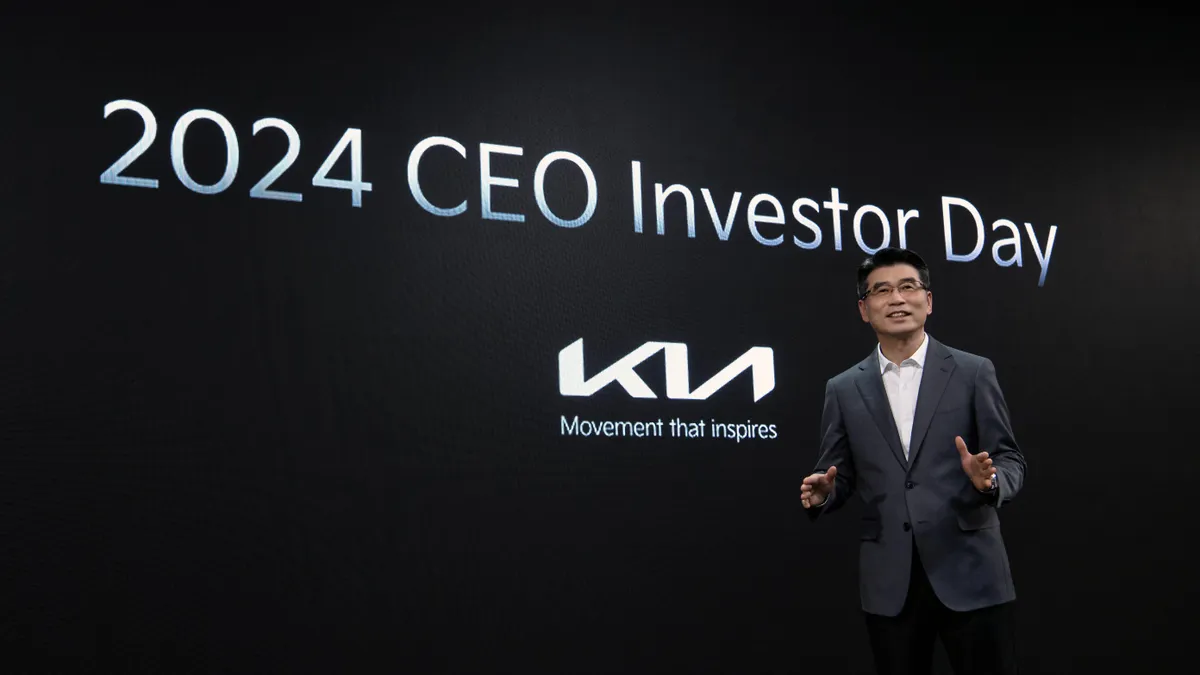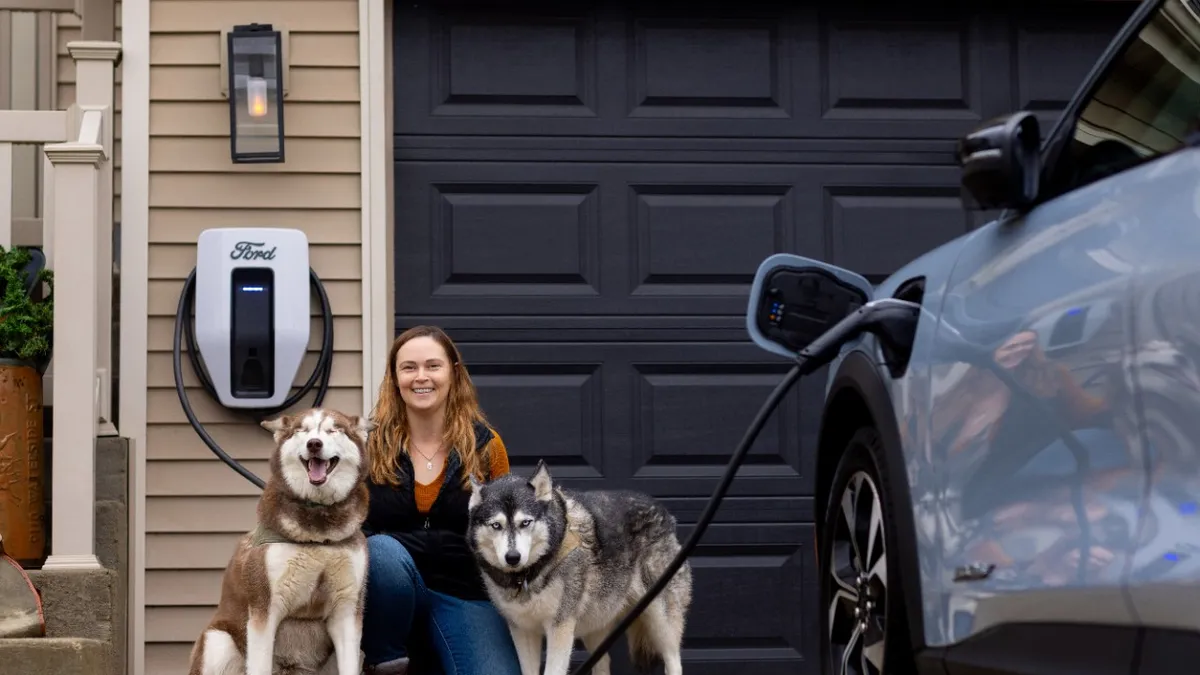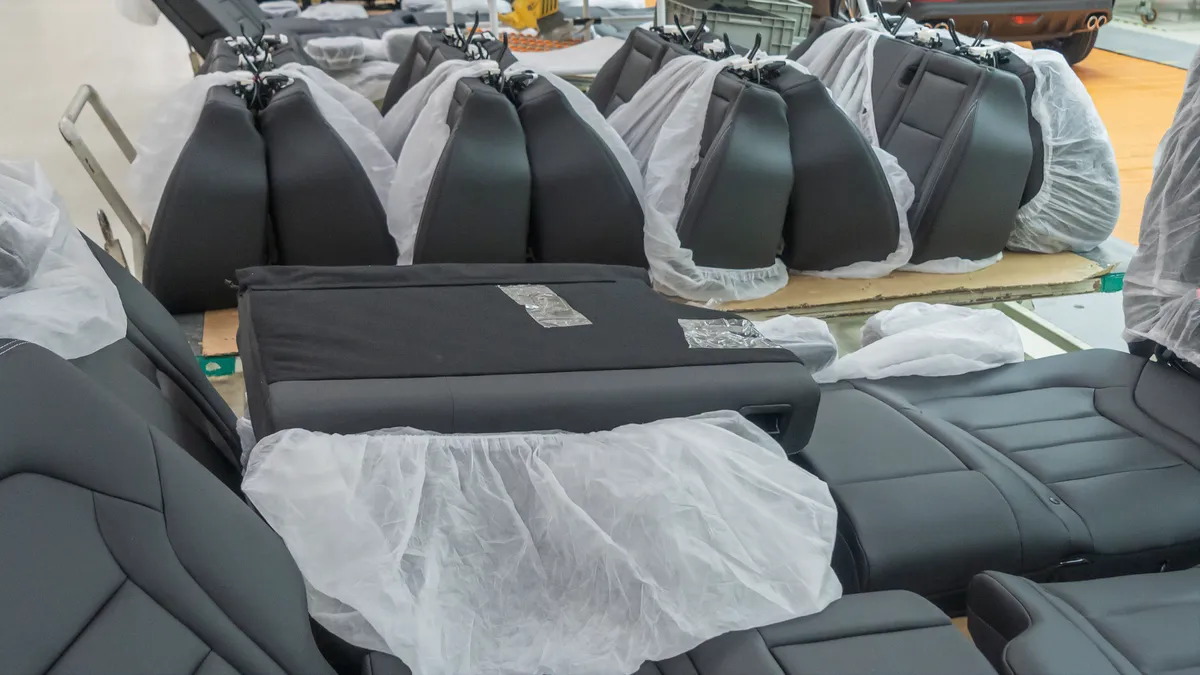Dive Brief:
- Kia Corp. is emphasizing hybrid vehicles in an updated electrified vehicle strategy that will guide it through 2030, the company shared at its annual CEO Investor Day event in Seoul, South Korea, on Friday.
- The automaker plans to launch 15 new EVs by 2027 and for electrified vehicles — including fully electric and hybrid models — to account for 58% of Kia’s total sales (2.48 million units) by 2030.
- Kia aims to expand its hybrid vehicle lineup from six models this year to nine models by 2028, with new hybrid powertrain options offered for most of its popular vehicles.
Dive Insight:
Kia’s plan to launch more hybrid vehicles is in response to market conditions, including declining demand for EVs, according to the press release. It's a similar strategy as General Motors and Ford, both of which recently have announced plans to scale back the production of fully electric vehicles and launch more profitable and affordable hybrid models.
While Kia expects that the rate of EV growth may prove uneven in the near term, the company’s forecast for long-term demand for 2030 is unchanged. The automaker cited factors such as weaker global economic growth, reduction of EV subsidies and the slow buildout of charging infrastructure for contributing to its evolving electrification strategy.
The automaker is pushing for battery-powered vehicle sales to reach 1.15 million units a year in 2027 and 1.6 million by 2030. The company plans to launch six new EV models by 2026 to help it do so, beginning with the EV3 this year. Following the EV3, Kia plans to launch the EV2, EV4, and EV5 in major global markets including the U.S., Europe and South Korea.
"Following our successful brand relaunch in 2021, Kia is enhancing its global business strategy to further the establishment of an innovative EV line-up and accelerate the company’s transition to a sustainable mobility solutions provider," Kia President and CEO Ho Sung Song said in a statement.
The company is also tapping into increased hybrid vehicle demand with plans to develop next-generation hybrid powertrains with improved performance and efficiency. The automaker plans to integrate these new hybrid technologies in various vehicle segments, as well as expand production capabilities for both hybrid and internal combustion engine models.
Kia will also upgrade its current EV technology, including using more energy dense, nickel-cobalt-manganese batteries to extend range. In addition, the automaker will offer EVs with lower-cost lithium iron phosphate batteries to meet the needs of different global markets.
The automaker will also focus on building more software-defined vehicles with high-speed connectivity and artificial intelligence technologies. The automaker is upgrading its highway driving assist technology with plans to offer autonomous driving features in cities by 2026.
Kia’s business guidance calls for an operating profit margin of 11.9% and sales of 3.2 million vehicles globally this year. The automaker’s 4.3 million annual sales target for 2030 is 34.4% higher than its 2024 goal.
Together, Kia and Hyundai Motor Group are investing billions to develop new EVs, hybrid models and software-based vehicles by the end of the decade as both companies look to become global leaders in electrification.
Last month, Hyundai announced its own plans to invest 68 trillion won ($50 billion) in electrification, software-defined vehicles, autonomous driving, robotics and advanced air mobility.














